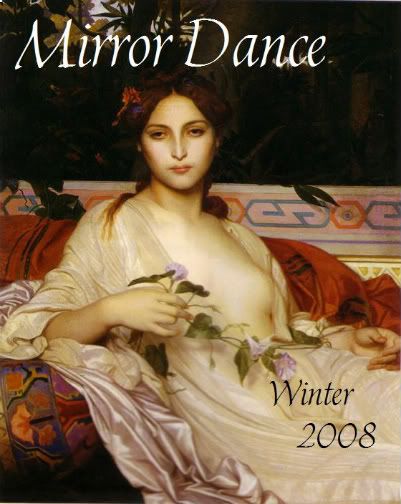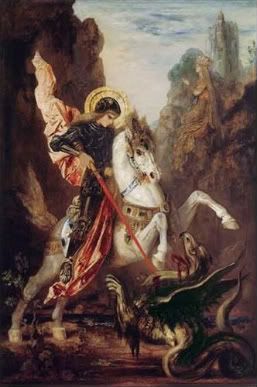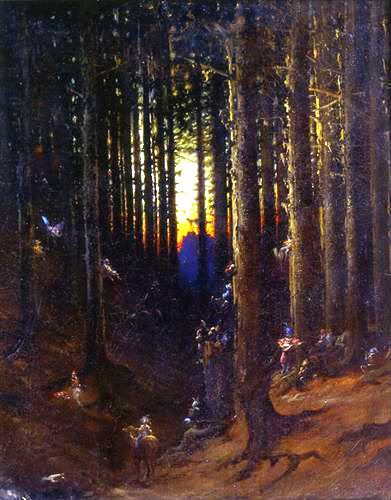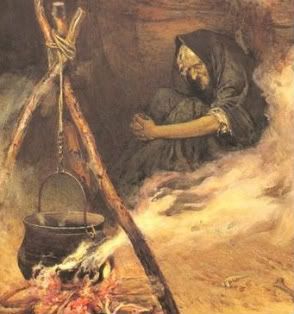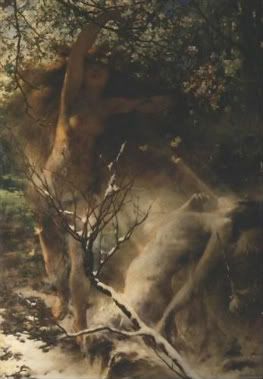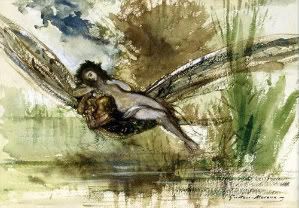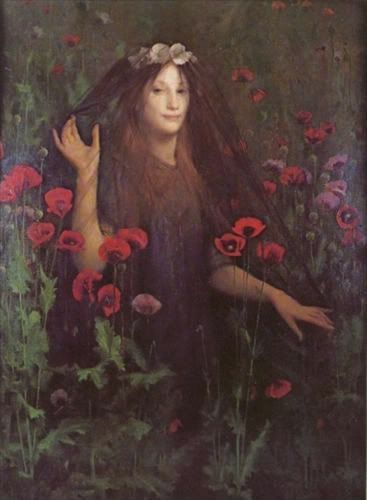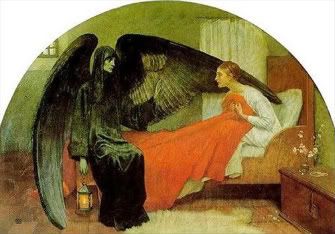The Gorilla Stone
Liza Granville
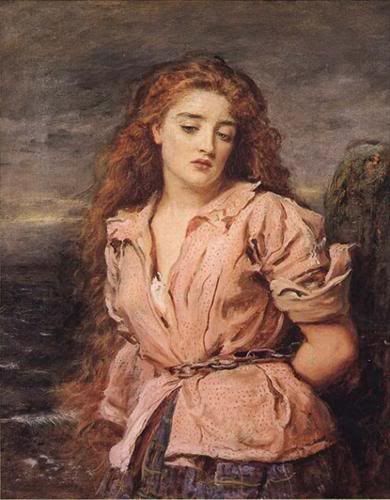
Tiffney lay on her stomach trying to net minnows in one foot of an old pair of tights. It was useless. The fish stayed one quicksilver sharp about-turn ahead. They saw her skinny shadow fall across the water. They heard her hunger growl. Wasn’t the end of the world though: she’d caught a frog, found snake eggs, and two wood pigeons - out of reach among the strangling ivy - cooed everlasting love that might mean a nest later. Jack would be pleased. He’d call her
his little wench. No, it wasn’t the end of the world. Not yet.
Braving the thistles chewing the five-barred gate, Tiffney climbed the hill, glancing eastwards to gauge whether the thick yellow-black cloud had crept any nearer. Jack said it was inevitable. Auntie agreed. It was only a matter of time now. Every day was spent stockpiling for whatever lay ahead. Or moving scant supplies from one hiding-place to a better one; preparing defences against the starving hordes who’d come streaming out of the cities. That was why they let her run wild, in the orchard with its few wizened apples (each with a little rag hammock to save it from bruising if it fell), through the dank, dark woods where spread sacks covered the ground beneath every beech and hazel, over the bleached meadows sprouting a fine harvest of flints between the sparse wheat. But no further.
Things were changing. The rhythm had gone. Nothing was sure. Septic fungi boiled from the cracked earth. There was precious little to eat. The dead left quickly, with sighs of gratitude, no longer leaving even the palest glimmer of regret.
“We’re the ghosts now,” said Auntie, catching sight of herself in the looking-glass. She’d laughed. But later the darkness shuddered with the harsh racking of hopeless tears.
Remembering those sounds, Tiffney began searching for a gift, eyes raking the pale grass for a dandelion’s fierce yellow sunburst, or a crow’s feather that, twirled between the fingers, would turn purple, bottle, navy. Auntie was easy to please. Today, Tiffney found nothing. Not even a humbug-striped snail shell.
Zigzagging down towards the cottage, she stopped to poke the powdery clay around the Gorilla Stone. There was nothing remotely ape-like about the tall stone column. Slate-grey and regal, crusted with pewter lichen, it surveyed their valley with an air that spoke of ownership rather than inferiority. And anyway, gorillas were vegetarian. But Tiffney once watched a programme about silverbacks and, seeing the colour, thought that was how the stone got its name. Auntie had been half-amused, half-annoyed.
“
Gwyliwr, not gorilla, you silly girl.
Duw! Whatever was your Mam thinking of, keeping you ignorant of your own language?”
“What’s a goolier then?”
“
Gwyliwr. A look-out, a watchman, in the Welsh.”
“A sentinel,” said Jack.
“Like the old sentries at Buckingham Palace? What’s it guarding then?”
“Ah, now,” Jack scratched his head, looking to the ceiling for inspiration. “Once upon a time that there stone was a wicked miser. See, his house caught on fire and instead of rescuing his family like any decent man, he upped and made off with his money, leaving them to burn in their beds. Now he’s got to stand there for all eternity. And that cleft down his middle is where his father-in-law heard what he’d done and come after him with a great axe. Split him brain-pan to arse-backwards, didn’t he?”
“Don’t fill the child’s head with nonsense,” said Auntie, shaking her head to show it wasn’t true.
But Tiffney still dreamed of unearthing bags of gold. Time was on her side. First the grass withered and died. More of the surrounding clay was carried away each day by the wind leaving the stone a huge double molar anchored in receding gums. Gradually its roots were laid bare and the gap was widening. There was no sign of treasure yet.
She was careful not to venture too near. Jack carried on something terrible when the last sheep disappeared, swearing blind it was
Saesneg poachers, swarming over Offa’s Dyke – as they’d done since Norman times - looking for women and livestock. Tiffney knew better - didn’t matter that nobody believed her - she’d seen what she’d seen. The stone had eaten them alive.
Some woody blackberries proved enough to put Auntie in a good mood. After their scant supper, Jack built a fire, last remaining luxury. Flames leapt up the huge chimney, staving off fear of tomorrow with their fierce show of life. Even the roaring wind circling the walls like the
Cwn Annwn, the Hellhounds, snapping at their own tails, faded as Tiffney snuggled close, swallowing whole Auntie’s stories of the
Tylwyth Teg, the Fair Family - not flimsy little bits of things with flower hats and gossamer wings, but tall beings dressed in white who came from another place.
“Once they came and went as they pleased, the fairy women who married Welsh men and gave their children the gift of singing and poetry. But people misused the land. Now they come no more.”
“But where did they come
from?” Tiffney demanded.
“Fairyland, of course.”
“And is it nice there?”
“Nice?” Jack leaned back, closing his eyes. “I’ll say. Days are spent dancing and nights feasting. The trees weighed down with delicious fruits, some tasting of whisky, others of mead. As much bread as you can eat.
With butter thick as you like. Fat cattle roaming free over thick green pasture. And pigs. And peacocks. Every night folk kill and roast them, but come morning the bones leap up and the creatures come alive again.”
“But how d’you get there? Where’s the way in?”
“Ah,
cariad, if only we knew. Through spaces between this moment and the next. Through spaces inside spaces. By way of places seen only from the corner of an eye. They’re not called the Hidden Lands for nothing.” Auntie sighed and stroked Tiffney’s hair. “
Tydi hi’n ddel? Isn’t she pretty?”
“Spitting image of you,” Jack said, gallantly.
Auntie flashed him a rare smile. “Ah, get on with you,
drwg old liar.” But her eyes were full of love.
Tiffney stared into the glowing palaces and ember caves beneath the smouldering logs. Where was the space between this moment and the next? It didn’t exist. This moment was already the next. Spaces inside spaces? How could you see them?
She dozed and woke to find herself lying in her bed under the eaves. It was still dark. The cottage’s timber frame flinched and trembled before the force of the wind which came in bursts, savage at first, gradually weakening, like ripples on a pond disturbed by a series of lobbed rocks. Pulling the quilts over her head, Tiffney fell in and out of sleep as she tried solving Auntie’s riddle. Space within a space? Her thoughts constantly returned to that morning when she’d stood on the hill looking down on their sheep, clustered around the Gorilla Stone, staring as if mesmerised. Had she imagined the flash of emerald at its heart? Had she dreamed the calm way in which, one after another, the sheep eased their woolly backsides through the gap? Space within a space… if this was a door to an other place then it was slowly opening.
Downstairs, Auntie and Jack sat holding hands by the dead fire. They neither moved nor spoke. Last night’s fierce easterlies had brought death clouds boiling in to sit like a lid on the cauldron valley. The world had turned monochrome. The air was thick and heavy: short of oxygen. Her sinuses ached. A foul taste collected at the back of her throat. Every movement was an effort.
Clutching a bare hazel wand, Tiffney stumbled up the owl-light banks. Overnight, more earth had been eroded. The Gwyliwr had opened its great arms into a ninety-degree ‘V’, but already its granite edges were crumbling like manky timber. Turning her head quickly, this way and that, Tiffney
thought she caught glimpses of of swift bright flashes that might be birds or butterflies but looked at full face, the split stone framed only the cottage crouching wounded on the shadowed valley floor. She tentatively pushed forward the twig. Its tip pierced nothingness and disappeared, but the whole remaining length of it twitched and jumped, adder-crazy, in her hand. Tiffney stood her ground, counting to ten as Auntie had taught her:
un, dau, tri, pedwar, pum, chwech, saith, wyth, naw, deg…A terrible darkness threatened, but when she drew back the branch new buds had swollen, a pair of catkins trembled and danced over the promise of a tiny female flower. A kaleidoscope sliver of other hung in the air, faded, disappeared. Tiffney braced herself. Auntie had given her the clues. It was
now or never.
Now was the space between this moment and the next. Only trust could find the space within a space. One last bite of the choking air and she launched herself forward into the world unseen.
* * * Liza Granville lives in Gloucestershire, with three monstrous Persian cats, her own personal bodyguard and an over-active imagination. She's the author of 2 novels: Curing The Pig; The Crack of Doom. A third, Until The Skies Fall, will be published late 2008. Her stories are regularly published in national and international magazines. Her work also appears in several anthologies. She makes quilts, paints and cooks erratically but is unable to master housework.
What inspires you to write and keep writing? I have to write. My characters detail become so real to me that they nag until they are released into the world.
What do you think is the most important part of a fantasy story? That it has a believable base line from which springs the 'what if?'
What do you think is the attraction of the fantasy genre? The God(dess)-factor: my universe, my rules, my take on the human condition.
What advice do you have for other fantasy writers? Keep going! Since writing is an addiction, what else is there to do?
